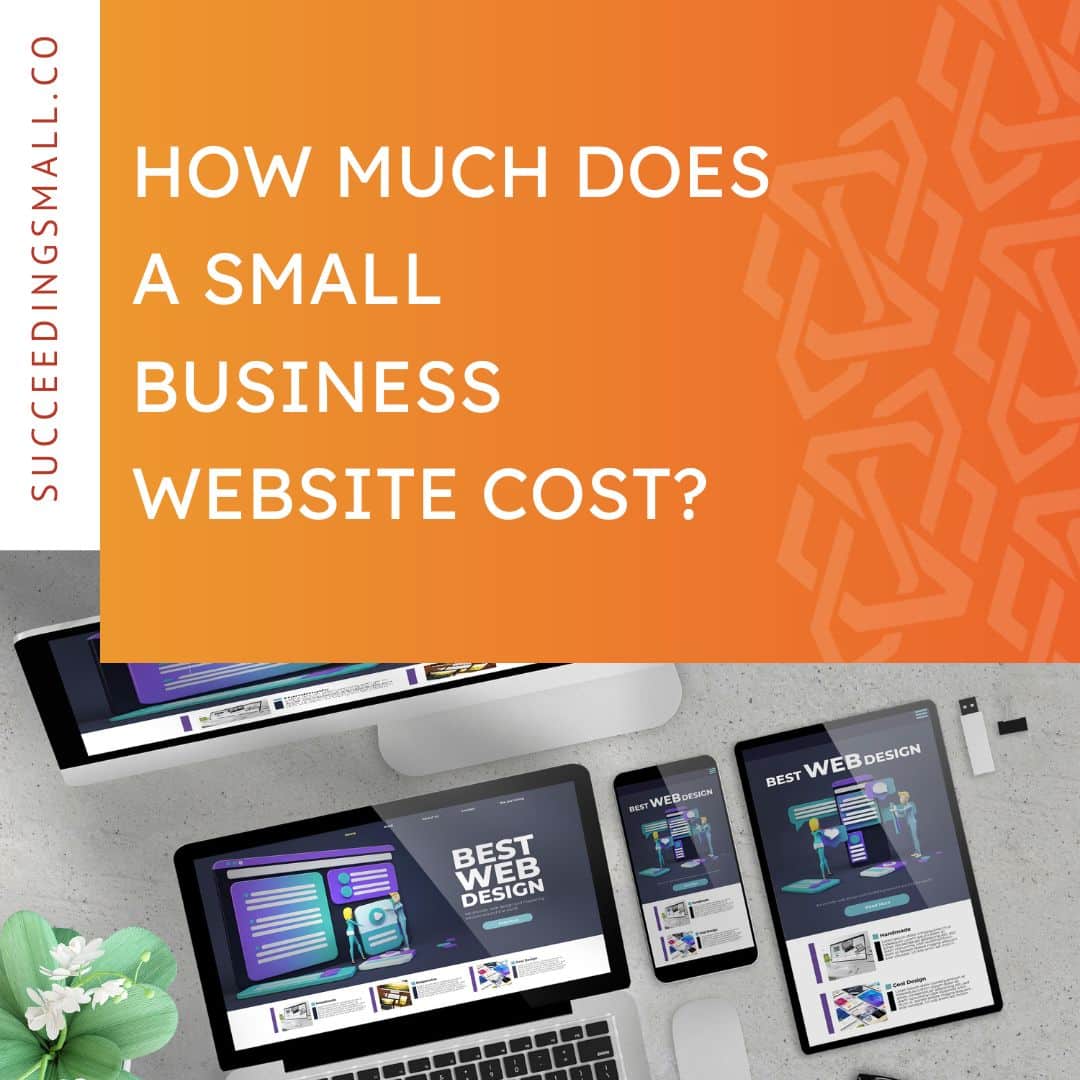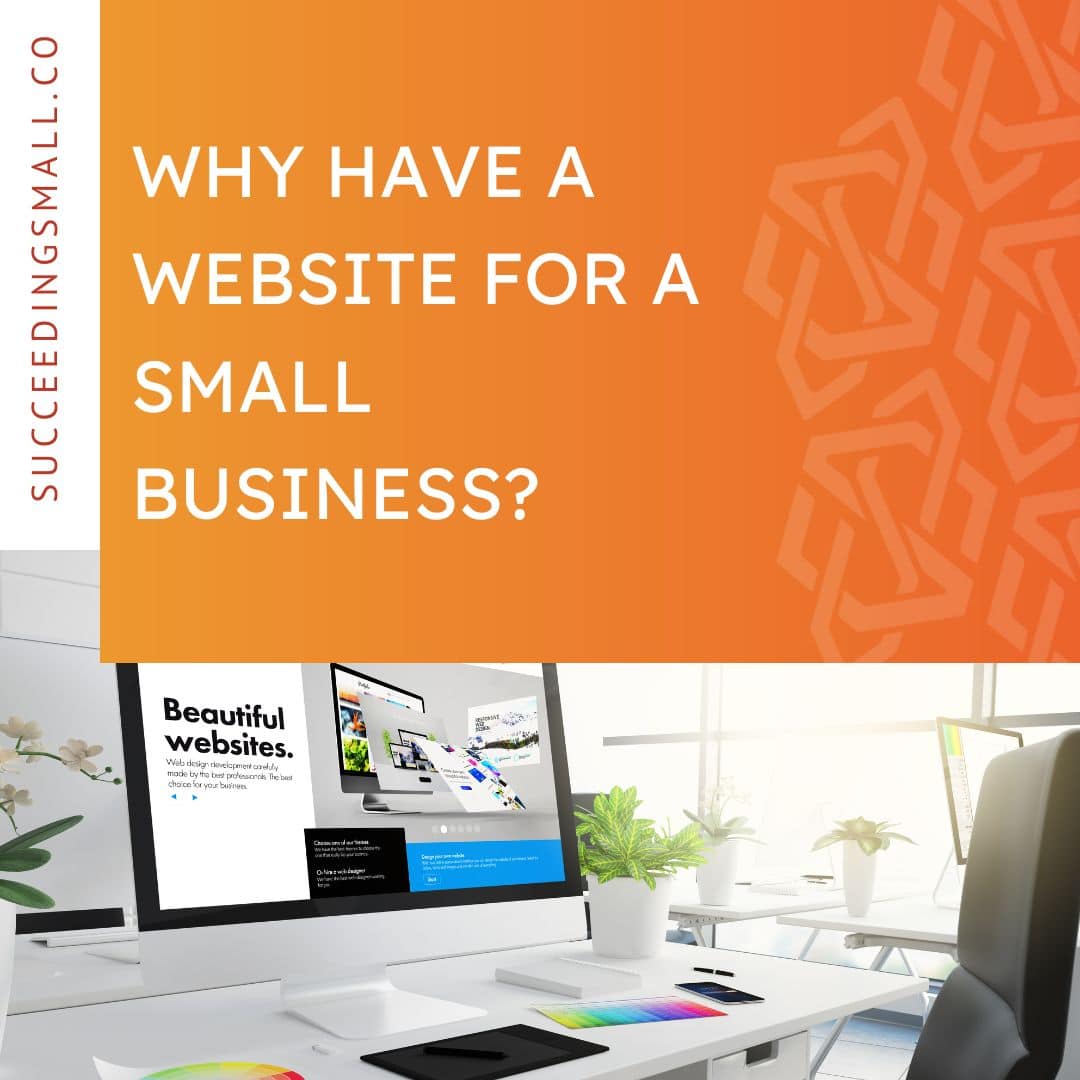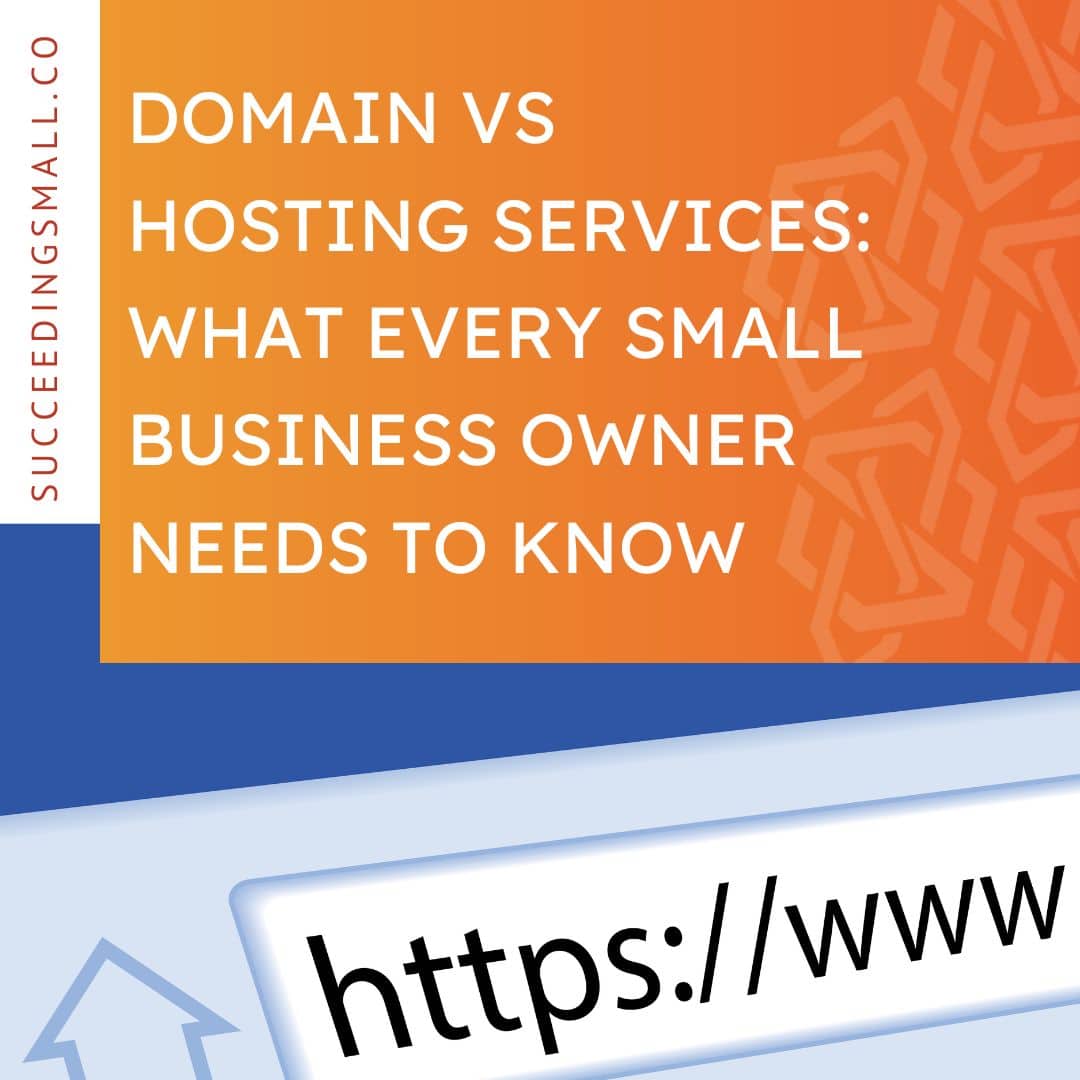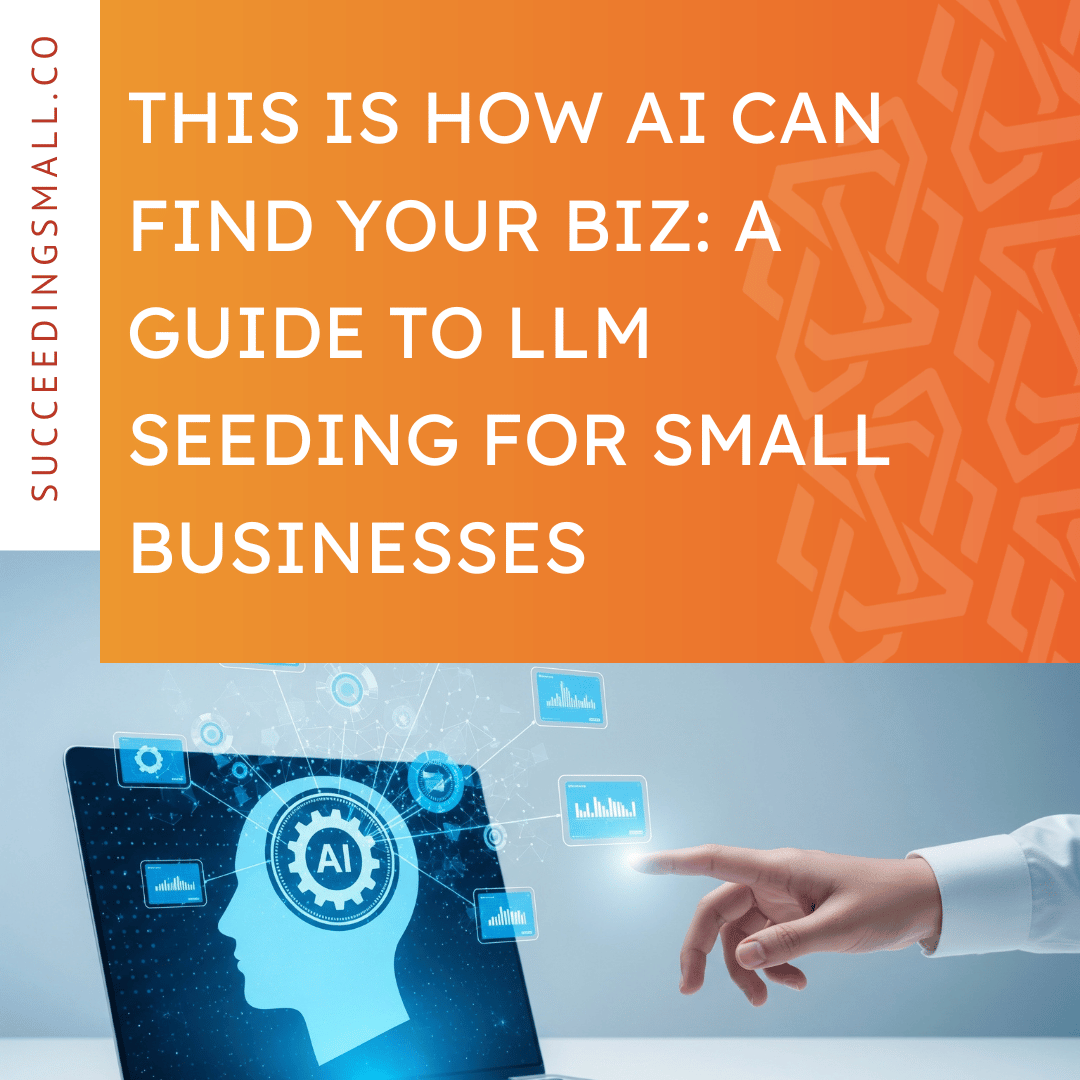Struggling with where to start when making a small business website? Here are some small business website tips!
When it comes to planning your first small business website, small business owners have a big role to play, regardless of whether you design it yourself or hire a web designer to do it for you. A small business’s brand image and goals are at the center of website design. Here’s a breakdown for starting a website for a small business!
At Succeeding Small, we understand the importance of creating an effective website as a small business in Colorado Springs. With our website design experience, we have enabled our clients to reach their full potential and achieve their small business goals through websites that enhance and display their brand image while effectively engaging customers. Here are some helpful small business website tips!
Identify your website goals
When it comes to laying the foundation of your website, it’s important to keep in mind what your ultimate end goal for your site is. Are you aiming to sell products? To increase brand awareness? To sell services? These are helpful questions to consider when you’re deciding on how to start a website for your small business.
Identifying your goals for your small business website will establish the theme, tone, and content of your site!

Choose a domain & register it
Choosing a domain name for your site is important! It signifies that you are a credible site and quickly displays who you are to your customers. Your domain name should be your business name in its simplest state and clearly communicate to your audience what your business is.
Once you choose a domain name, you’ll need to register it with a domain registrar. You can achieve this through various domain sites, such as Domain.com or Network Solutions. Typically, registering your domain name will cost between $10 and $20 per year.
Keep in mind that registering your domain name only buys you the name for the site! You’ll need to choose another provider to host your URL; this will provide you with a site space that you can then design! Depending on where you choose to host your URL, you may need to purchase another program to design it, such as Elementor!
Choose your hosting provider and design provider
It’s important to explore your options and choose the right hosting provider for your small business. A hosting provider enables you to host your URL, build your website, and create space for your designs and website content.
If you have minimal coding or design experience, it may be helpful to choose a domain from a website provider that offers registration, hosting, and design features. Some all-in-one options include WordPress, WIX, GoDaddy, and Squarespace.
At Succeeding Small, we use and recommend WordPress for all our clients because of its vast capabilities and ability to customize a website in great detail with fewer limitations compared to the other providers listed above!
If you choose to host with a site provider that does not offer design features or offers few options, programs like Elementor can integrate with several site hosting providers. Other independent programs like Canva and Adobe Creative Cloud applications can also give you more design flexibility if your hosting provider does not integrate with other design applications!
Make a landing page that stands out
A compelling website can enable your small business to have a shining online presence. Your site’s landing page is the first step to setting the stage for expanding your business’s potential!
The top section of your site’s home page, also known as the “above the fold” section, is arguably the most important part of your small business website! This section is the attention grabber and will determine if a viewer remains on your page or not. Like a newspaper, the “above the fold” is what the newspaper advertises to get customers to buy it. In the same way for your website, this section will convince viewers to stay on your site and interact with it.
It’s important to have an engaging website design that is cohesive across all pages to have an attention-grabbing home page! Including engaging content on your home page that shows viewers that your focus is on how you can assist them rather than why they should choose you gives you the opportunity to connect with viewers and gain their business organically.

Create useful & descriptive pages
Pages are useful and serve your business goals, making your business stand out from competitors! Including various pages gives you the opportunity to do so!
Different pages not only organize your site but also increase your chances of showing up on a search result page! Pages have a big role to play when optimizing your site for search engine results.
Another important thing to note is that you need to optimize each page’s URL! Doing so will help Google recognize what that page is about. Having a URL that describes the page will help Google do this!
Ensure that each page includes a meta description. This is the section below the title tag that will appear on the search engine results page. The meta description describes what your page is about.
Make sure you link each page back to other pages on your site! This will create a better user experience and direct customers to important pages that are relevant to other corresponding pages. You can achieve this by hyperlinking text to a service page, for example!
Creating unique pages that resonate with customers is important! It’s a great opportunity for small business owners to feature what makes them stand out from their competitors. Some examples of unique page topics include:
- how your business started
- customer testimonials
- informational blog posts
- employee features
Pages can also assist you with making a site that displays your company’s brand image. This gives customers a visual representation of your business!
Add content that attracts users’ attention
Be sure to add content to your site that encourages users to interact with your pages. This will help your site perform better and enable you to meet your goals!
Going the extra mile to customize sections of your site can help draw viewers’ eyes to important sections. Adding interactive elements is a great way to achieve this! However, it’s important not to add too many interactive elements. Excessive animations will make your site’s code heavier and slow it down.
Take a moment to look at examples and find small business website design ideas. Doing so will enable you to compete with competitors and rank higher than them on the search engine results page.
Make a branded website
Having on-brand elements throughout your site gives your small business the opportunity to have a recognizable company image! Elements like colors, shapes, fonts, and patterns can be drawn from your logo. Be sure to maintain these elements throughout all of your site’s pages.
Creating a document/folder containing your brand’s design elements can be handy for you to reference for other projects.
A website can make your business more memorable. Use it to display your brand image and values to customers! Having an engaging website design is necessary!
Optimize your website for SEO
The content and text on your website is what will optimize it for SEO, otherwise known as search engine optimization. Optimizing your site for search engines will help your pages show up on the search results page.
Including phrases that are commonly searched on Google within your website will enable you to rank for keywords on Google. Using tools like Keywords Everywhere or Semrush will allow you to search phrases and identify keywords that are commonly searched! These programs can also give you keyword suggestions!
SEO specialists can assist you with helping your small business site rank for keywords. But it’s also possible to rank with a smaller budget. You can organically find keywords to rank for and include them on your website.

Maintain your site
When it comes to starting a website for your small business, your work is never done! It’s important to continuously modify your website. Many website providers have frequent updates that are important to check for! Updating your site allows it to maintain a fast speed!
It’s also important to stay up to date on Google’s algorithm updates. These will inform you of what Google is looking for when it makes decisions on what sites will rank higher.
Google will frequently ‘crawl’ through different websites and content to determine which are relevant and push them up higher. Google will also deem some sites as irrelevant and push them down further. This is why it’s important to make sure your website includes relevant content and is frequently updated.
No matter how you decide to build your website as a small business owner, remember that you’re in control! Do your research and find out what options are best for you and your company.
Turn clicks into clients
Get our Conversion Guide and start improving your results today.













